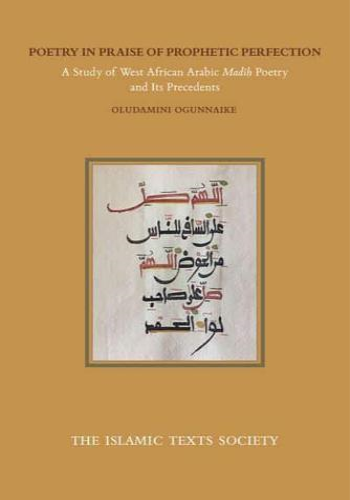The vibrant tradition of West African Arabic poetry is dominated by the genre of madih, that is, poetry in praise of the Prophet Muhammad. This genre of poetry has been mostly ignored in Western scholarship and dismissed as mere 'pious praise' lacking any significant intellectual content. In Poetry in Praise of Prophetic Perfection, Dr Oludamimi Ogunnaike challenges the misconceptions around West African madih poetry and addresses the scope and depth of this genre; he not only explores its rich lyrical nature and its foundations in the Qur'an, Hadith, pre-Islamic and early Islamic poetry, but also its inextricable link to Sufism and Sufi doctrines of cosmology, ontology and epistemology. Drawing on Sufi traditions and practices, the author expounds on the various ways in which West African madih poetry both describes and facilitates the ultimate fulfilment of the human potential, the Perfect Human (al-Insan al-Kamil) or the attainment of the Praiseworthy Station (al-Maqam al-Mahmud) of which the Prophet Muhammad is the highest example.
Poetry in Praise of Prophetic Perfection includes translations of numerous extracts from madih poetry (accompanied by the original Arabic); while the Appendix presents a selection of complete poems-the most popular and influential poems of this tradition. Poetry in Praise of Prophetic Perfection is an opportunity for readers to gain access and appreciation of a unique genre of spiritual Islamic poetry, and, given that it includes the original Arabic, also enables the recitation of the poetry for devotional purposes.







